Material Time
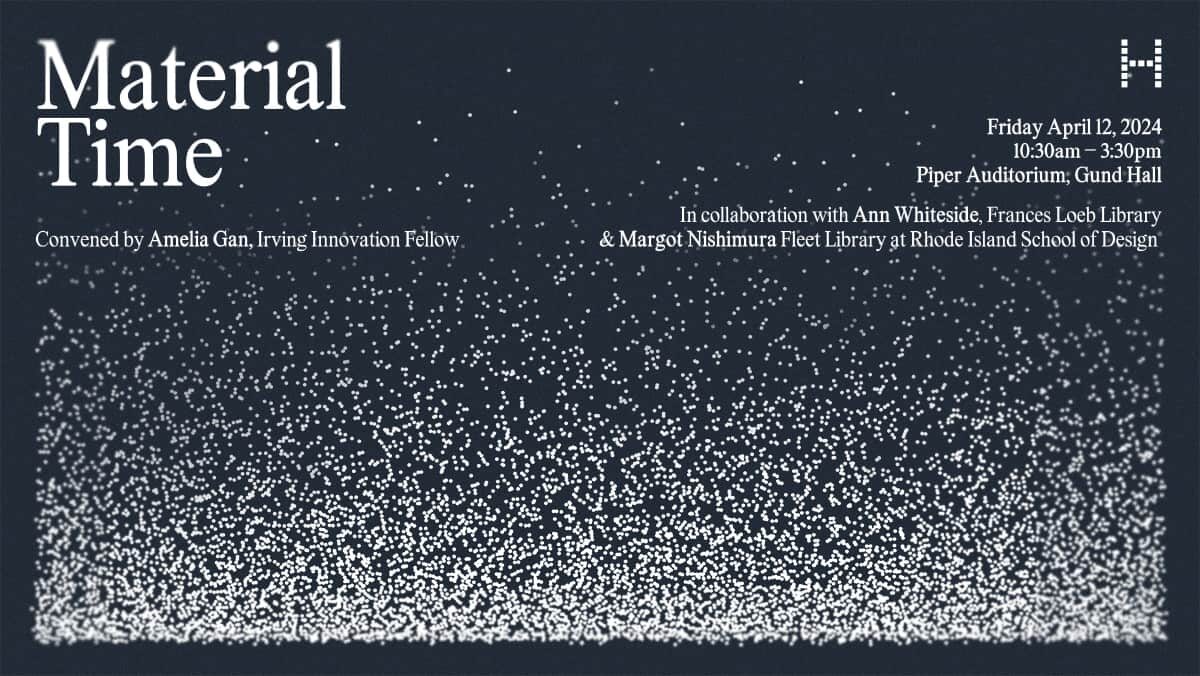
Event Description
Currently, the relationship of building to time is fixed, with weathering and material transformations only superficially accounted for through necessary repairs. The frozen-in-time relationship we have with the built environment relies on materials from a nearly exhausted supply chain, prompting a shift towards local and regenerative sources. While bio-based materials are possible sustainable alternatives, their susceptibility to weathering and shorter lifespan compared to mineral-based counterparts invites thinking about temporality through observable material transformations.
This symposium examines bio-based materials, including their growth, assemblies, maintenance, and experimentation practices. It explores their current and potential applications across different design scales, while also discussing strategies for thinking, teaching, and design approaches. Central to the gathering is the question, how can we reconsider our relationship to the built environment through materials of various temporalities?
The event will not be live-streamed, but the recordings will be archived on the Harvard University Graduate School of Design and Material Order web pages.
Register here for the symposium.
Symposium Program
Friday, April 12
Harvard GSD, Piper Auditorium
48 Quincy St., Cambridge, MA 02138
Registration
10:00 a.m.
Welcome
10:30 a.m. – 10:40 a.m.
Sebastian Schmidt Dalzon, Assistant Dean for Academic and Strategic Planning, GSD
Ann Whiteside, Assistant Dean for Information Services, GSD
Margot Nishimura, Dean of Libraries, RISD
Introduction
10:40 a.m.–10:50 a.m.
Amelia Gan, Irving Innovation Fellow, GSD
Panel 1: Experimentation
10:50 a.m. – 12:00 p.m.
Moderated by Daniel Tish
Lola Ben-Alon, Material Kitchens: Recipes and Processes
Laura Maria Gonzalez, Bacterial Biocement: Micro Agents Macro Scale
Laia Mogas-Soldevila, Reviving Matter for Regenerative Architecture
Field Notes
12:00 p.m. – 12:30 p.m.
Joseph Kennedy, Perennial Projects: Ecologically Responsive Biopolymer Materials
Maroula Zacharias, Thermo-Chromo-Myco-Synthetic: An Experiment on Biomaterials, Albedo and Heat
Hugh Taylor, A Hut and a Bench
Nicky Rhodes, Ian Erickson & Vincent Jackow, COBI: Collective Organic Building Initiative
Lunch Break
12:30 p.m. – 1:10 p.m.
Panel 2: Translation
1:10 p.m. – 2:20 p.m.
Moderated by John May
Lina Ghotmeh, Belonging
Leonard Palmer, Pipecycle: A Heated Exchange between Systems and Space-Making
Paul Lewis, Biogenic Building Sections: Straw
Panel 3: Integration
2:25 p.m. – 3:30 p.m.
Moderated by Amelia Gan
Martin Bechthold, Parallels and Paradoxes: Science, Design, and Biomaterials
Pablo Perez-Ramos, A World of Events
Jennifer Bissonnette, Can we Create a Culture of Care?
Closing Remarks
Speakers
 Martin Bechthold is the founding Co-Director of the Master in Design Engineering Program and the Kumagai Professor of Architectural Technology in the GSD’s Department of Architecture. He is also an Affiliate in Materials Science & Mechanical Engineering at the Paulson School of Engineering and Applied Sciences (SEAS) at Harvard, and has long been affiliated with the Wyss Institute for Biologically Inspired Engineering. He teaches courses in design and research methods, material systems, and building structures. At the GSD Bechthold founded the Material Processes and Systems (MaP+S) Group, a research unit at the intersection of science and design. The group focusses on interdisciplinary topics such as multi-material 3D printing, structural innovation through post-tensioning, carbon negative building materials, and the quantitative perception of buildings.
Martin Bechthold is the founding Co-Director of the Master in Design Engineering Program and the Kumagai Professor of Architectural Technology in the GSD’s Department of Architecture. He is also an Affiliate in Materials Science & Mechanical Engineering at the Paulson School of Engineering and Applied Sciences (SEAS) at Harvard, and has long been affiliated with the Wyss Institute for Biologically Inspired Engineering. He teaches courses in design and research methods, material systems, and building structures. At the GSD Bechthold founded the Material Processes and Systems (MaP+S) Group, a research unit at the intersection of science and design. The group focusses on interdisciplinary topics such as multi-material 3D printing, structural innovation through post-tensioning, carbon negative building materials, and the quantitative perception of buildings.
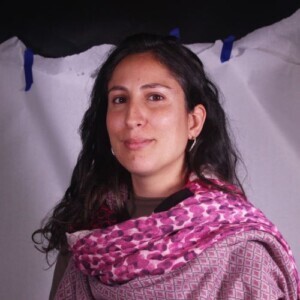 Lola Ben-Alon is an Assistant Professor at Columbia GSAPP, where she directs the Natural Materials Lab and the Building Science and Technology curriculum. She specializes in earth- and fiber-based building materials, their life cycles, supply chains, fabrication techniques, and policy. Ben-Alon received her PhD from the School of Architecture at Carnegie Mellon University, and she holds a B.S. in Structural Engineering and M.S. in Construction Management from the Technion, Israel Institute of Technology. At the Technion, Ben-Alon also majored in Critical Curatorial Practices and co-founded the Experimental Art and Architecture Lab. Her work has been exhibited at the 2024 Indian Ceramics Triennial, 2022 Tallinn Architecture Biennale, 1014 Space for Ideas in NYC, Tel-Aviv Museum of Art, and the Israel Museum in Jerusalem, and published in Building and Environment, Journal of Green Building, and Automation in Construction. Ben-Alon serves on the board of ACSA’s Technology | Architecture + Design, and Elsevier’s Renewable and Sustainable Energy Reviews.
Lola Ben-Alon is an Assistant Professor at Columbia GSAPP, where she directs the Natural Materials Lab and the Building Science and Technology curriculum. She specializes in earth- and fiber-based building materials, their life cycles, supply chains, fabrication techniques, and policy. Ben-Alon received her PhD from the School of Architecture at Carnegie Mellon University, and she holds a B.S. in Structural Engineering and M.S. in Construction Management from the Technion, Israel Institute of Technology. At the Technion, Ben-Alon also majored in Critical Curatorial Practices and co-founded the Experimental Art and Architecture Lab. Her work has been exhibited at the 2024 Indian Ceramics Triennial, 2022 Tallinn Architecture Biennale, 1014 Space for Ideas in NYC, Tel-Aviv Museum of Art, and the Israel Museum in Jerusalem, and published in Building and Environment, Journal of Green Building, and Automation in Construction. Ben-Alon serves on the board of ACSA’s Technology | Architecture + Design, and Elsevier’s Renewable and Sustainable Energy Reviews.
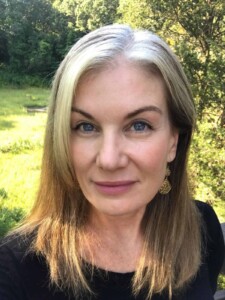 Jennifer Bissonnette is an ecologist and marine scientist whose work engages techniques of transdisciplinary inquiry to merge natural sciences knowledge, techniques and methods of inquiry with art and design thinking and studio practices. With a BS in biology from Eckerd College and a PhD in marine science from the College of William and Mary/Virginia Institute of Marine Science, she focuses broadly on human-nature connections and systems thinking to help innovate design solutions to environmental and societal challenges. Her past experience includes working on Capitol Hill as a natural resources legislative assistant, conducting coastal resource management work for the state of Virginia and teaching college classes. She is also responsible for overseeing the design, construction and programming of the Nature Lab’s new BioDesign Makerspace.
Jennifer Bissonnette is an ecologist and marine scientist whose work engages techniques of transdisciplinary inquiry to merge natural sciences knowledge, techniques and methods of inquiry with art and design thinking and studio practices. With a BS in biology from Eckerd College and a PhD in marine science from the College of William and Mary/Virginia Institute of Marine Science, she focuses broadly on human-nature connections and systems thinking to help innovate design solutions to environmental and societal challenges. Her past experience includes working on Capitol Hill as a natural resources legislative assistant, conducting coastal resource management work for the state of Virginia and teaching college classes. She is also responsible for overseeing the design, construction and programming of the Nature Lab’s new BioDesign Makerspace.
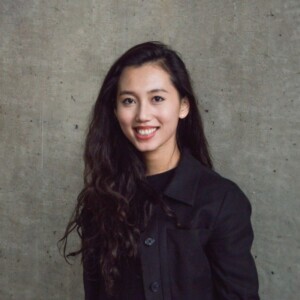 Amelia Gan is an architectural designer and researcher. She is currently the Irving Innovation Fellow at Harvard Graduate School of Design. She holds a Master in Design Studies (Mediums) from Harvard GSD, where her Open Project, Place-Time: From Waste to 3D CAD was awarded the Digital Design Prize. She also holds a Bachelor of Architecture from Syracuse University, where she received the Dean’s Citation for Excellence and Crown & Wise-Marcus Award for her architectural thesis, titled Speculative Spoliation: Instrument of Locus Making and Identity-Mediation. Her works have been published in ACADIA, eCAADe, ACII and various others. Amelia previously completed a design-build residency at Ragdale, where she contributed to the creation of Echo–an outdoor performance venue for Ragdale Ring 2022.
Amelia Gan is an architectural designer and researcher. She is currently the Irving Innovation Fellow at Harvard Graduate School of Design. She holds a Master in Design Studies (Mediums) from Harvard GSD, where her Open Project, Place-Time: From Waste to 3D CAD was awarded the Digital Design Prize. She also holds a Bachelor of Architecture from Syracuse University, where she received the Dean’s Citation for Excellence and Crown & Wise-Marcus Award for her architectural thesis, titled Speculative Spoliation: Instrument of Locus Making and Identity-Mediation. Her works have been published in ACADIA, eCAADe, ACII and various others. Amelia previously completed a design-build residency at Ragdale, where she contributed to the creation of Echo–an outdoor performance venue for Ragdale Ring 2022.
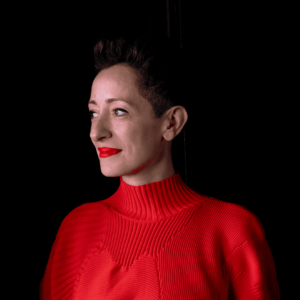 Lina Ghotmeh leads her practice Lina Ghotmeh — Architecture in Paris. Echoing her lived experience in Beirut–a palimpsest of unrest– her designs are orchestrated as an “Archeology of the Future” where every project emerges materially sensitive and in symbiosis with nature. Her work includes Stone Garden tower in Beirut, Dezeen Award ‘Project of the Year’ (2021), exhibited at the 17th Biennale in Venice, at MAXXI in Rome and in Cooper Hewitt in New York; the Estonian National Museum, Mies Van der Rohe nominee; Ateliers Hermès the first energy-positive, low carbon manufacturing building in France; Serpentine Pavilion in London and the future AlUla Contemporary Art Museum. Lina Ghotmeh was Louis I Khan professor at Yale, Gehry Chair at Toronto University (2021-2022) and currently holds the Kenzo Tange professorship at GSD Harvard. She has been awarded the Schelling Architecture Prize (2020) and the Great Arab Minds Award (2023) among other prizes and nominations.
Lina Ghotmeh leads her practice Lina Ghotmeh — Architecture in Paris. Echoing her lived experience in Beirut–a palimpsest of unrest– her designs are orchestrated as an “Archeology of the Future” where every project emerges materially sensitive and in symbiosis with nature. Her work includes Stone Garden tower in Beirut, Dezeen Award ‘Project of the Year’ (2021), exhibited at the 17th Biennale in Venice, at MAXXI in Rome and in Cooper Hewitt in New York; the Estonian National Museum, Mies Van der Rohe nominee; Ateliers Hermès the first energy-positive, low carbon manufacturing building in France; Serpentine Pavilion in London and the future AlUla Contemporary Art Museum. Lina Ghotmeh was Louis I Khan professor at Yale, Gehry Chair at Toronto University (2021-2022) and currently holds the Kenzo Tange professorship at GSD Harvard. She has been awarded the Schelling Architecture Prize (2020) and the Great Arab Minds Award (2023) among other prizes and nominations.
 Laura Maria Gonzalez is a researcher specializing in computational design, 3D printing, and synthetic biology. Holding a Master of Science in Architecture Studies from MIT and a Bachelor of Architecture from Carnegie Mellon, Laura’s work blends science, technology and design. Her research has been published in Nature Biotechnology, Designboom, STIRpad, and Casa Vogue. With experience as a teaching fellow at MIT, a researcher at the MIT Media Lab, and an architectural designer at SOM, Laura is committed to pioneering interdisciplinary design and technology. She continues to explore new frontiers in Architecture and material science, finding new ways to make in the future.
Laura Maria Gonzalez is a researcher specializing in computational design, 3D printing, and synthetic biology. Holding a Master of Science in Architecture Studies from MIT and a Bachelor of Architecture from Carnegie Mellon, Laura’s work blends science, technology and design. Her research has been published in Nature Biotechnology, Designboom, STIRpad, and Casa Vogue. With experience as a teaching fellow at MIT, a researcher at the MIT Media Lab, and an architectural designer at SOM, Laura is committed to pioneering interdisciplinary design and technology. She continues to explore new frontiers in Architecture and material science, finding new ways to make in the future.
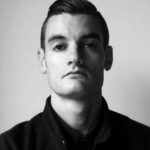 John May is founding partner, with Zeina Koreitem, of MILLIØNS, an award winning Los Angeles-based architecture practice. He is an Associate Professor of Architecture at Harvard GSD, and the author of Signal. Image. Architecture. (Everything is Already an Image) (Columbia, 2019).
John May is founding partner, with Zeina Koreitem, of MILLIØNS, an award winning Los Angeles-based architecture practice. He is an Associate Professor of Architecture at Harvard GSD, and the author of Signal. Image. Architecture. (Everything is Already an Image) (Columbia, 2019).
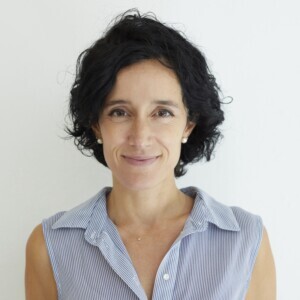 Laia Mogas-Soldevila is an Assistant Professor of Graduate Architecture and Director of DumoLab Research at the Stuart Weitzman School of Design, University of Pennsylvania. Laia’s research focuses on new sustainable material practices bridging science, engineering, and the arts. Her pedagogy supports novel theory and applied methods understanding biomaterials and bio-based fabrication in product design and architecture. She has built scholarship over the past ten years reconsidering matter as a fundamental design driver and partnering with scientists to redesign it towards unprecedented environmentally attuned capabilities. Laia holds an interdisciplinary doctorate bridging materials science, biomedical engineering, and arts and crafts from Tufts University School of Engineering, two master’s degrees from the Massachusetts Institute of Technology, and is a licensed architect with a minor in Fine Arts by the Polytechnic University of Catalonia School of Architecture in Barcelona and the École Nationale Supérieure de Beaux-Arts in Paris.
Laia Mogas-Soldevila is an Assistant Professor of Graduate Architecture and Director of DumoLab Research at the Stuart Weitzman School of Design, University of Pennsylvania. Laia’s research focuses on new sustainable material practices bridging science, engineering, and the arts. Her pedagogy supports novel theory and applied methods understanding biomaterials and bio-based fabrication in product design and architecture. She has built scholarship over the past ten years reconsidering matter as a fundamental design driver and partnering with scientists to redesign it towards unprecedented environmentally attuned capabilities. Laia holds an interdisciplinary doctorate bridging materials science, biomedical engineering, and arts and crafts from Tufts University School of Engineering, two master’s degrees from the Massachusetts Institute of Technology, and is a licensed architect with a minor in Fine Arts by the Polytechnic University of Catalonia School of Architecture in Barcelona and the École Nationale Supérieure de Beaux-Arts in Paris.
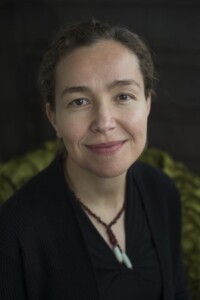 Margot McIlwain Nishimura is a historian of medieval art and dean of libraries at the Rhode Island School of Design (RISD). She has taught at the University of Cape Town, Smith College, Brown University and RISD and served in other leadership roles at RISD, the John Carter Brown Library (Brown University) and the Newport Restoration Foundation. With many publications and presentations in the areas of illuminated manuscripts, historic preservation, history of collecting and art and design school library management, she is most recently co-author of The State of Art and Design School Libraries 2021 (ARLIS/NA, 2022) and two articles for the Art Libraries Journal, including “Material Order: a discovery group and shared catalogue for materials collections” (with Mark Pompelia; January 2024).
Margot McIlwain Nishimura is a historian of medieval art and dean of libraries at the Rhode Island School of Design (RISD). She has taught at the University of Cape Town, Smith College, Brown University and RISD and served in other leadership roles at RISD, the John Carter Brown Library (Brown University) and the Newport Restoration Foundation. With many publications and presentations in the areas of illuminated manuscripts, historic preservation, history of collecting and art and design school library management, she is most recently co-author of The State of Art and Design School Libraries 2021 (ARLIS/NA, 2022) and two articles for the Art Libraries Journal, including “Material Order: a discovery group and shared catalogue for materials collections” (with Mark Pompelia; January 2024).
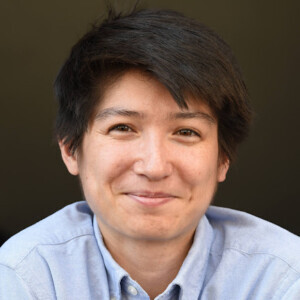 Leonard Palmer is a designer and researcher at the intersection of Harvard University School of Engineering and Applied Sciences (SEAS) and the Graduate School of Design (GSD). His interdisciplinary approach challenges conventional architectural paradigms, advocating for the intrinsic integration of technology and systems into the design of spaces. In particular, he is interested in harnessing thermal systems in creating and intensifying spatial experiences. With an affinity to fabrication, he explores material assemblies that seamlessly blend geometry and thermal performance within architecture, and his work was most recently exhibited in Our Artificial Nature at Harvard GSD’s Druker Gallery. He is currently involved in radiative sky cooling research and its potential architectural applications. Leonard received his Master of Architecture with distinction and the Alpha Rho Chi Medal from Harvard GSD, and holds a Bachelor of Arts in Mathematics and Studio Arts with High Honors from Wesleyan University.
Leonard Palmer is a designer and researcher at the intersection of Harvard University School of Engineering and Applied Sciences (SEAS) and the Graduate School of Design (GSD). His interdisciplinary approach challenges conventional architectural paradigms, advocating for the intrinsic integration of technology and systems into the design of spaces. In particular, he is interested in harnessing thermal systems in creating and intensifying spatial experiences. With an affinity to fabrication, he explores material assemblies that seamlessly blend geometry and thermal performance within architecture, and his work was most recently exhibited in Our Artificial Nature at Harvard GSD’s Druker Gallery. He is currently involved in radiative sky cooling research and its potential architectural applications. Leonard received his Master of Architecture with distinction and the Alpha Rho Chi Medal from Harvard GSD, and holds a Bachelor of Arts in Mathematics and Studio Arts with High Honors from Wesleyan University.
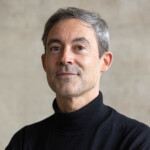 Pablo Pérez-Ramos is an Assistant Professor of Landscape Architecture at the Harvard Graduate School of Design (GSD). He is a licensed architect from the ETSA Madrid, with Doctor of Design and Master in Landscape Architecture degrees from the GSD. His work focuses on establishing theoretical relations between the disciplines of design and the natural sciences. He has investigated the origins of contemporary ecological views in landscape architecture through an examination of the central debates of ecological theory. Recently, he has been looking at agricultural landscapes in extremely hot and arid conditions, as part of an attempt to formulate a thermodynamic theory of landscape architecture, which looks at the orders produced by design as an interference with the energy flows that shape the environment.
Pablo Pérez-Ramos is an Assistant Professor of Landscape Architecture at the Harvard Graduate School of Design (GSD). He is a licensed architect from the ETSA Madrid, with Doctor of Design and Master in Landscape Architecture degrees from the GSD. His work focuses on establishing theoretical relations between the disciplines of design and the natural sciences. He has investigated the origins of contemporary ecological views in landscape architecture through an examination of the central debates of ecological theory. Recently, he has been looking at agricultural landscapes in extremely hot and arid conditions, as part of an attempt to formulate a thermodynamic theory of landscape architecture, which looks at the orders produced by design as an interference with the energy flows that shape the environment.
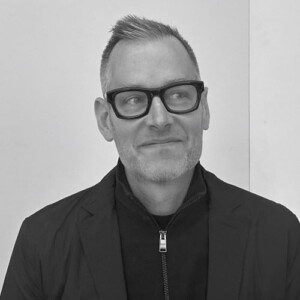 Paul Lewis, FAIA, is a Principal at LTL Architects based in New York City and Professor at Princeton University School of Architecture. LTL are the 2019 NY State AIA firm of the year, have received a National Design Award, and were inducted into the ID Hall of Fame. The firm’s recent work includes Poster House, The Helen R. Walton Children’s Enrichment Center, and a new residence hall at Carnegie Mellon University. Their current focus is on the architectural potentials of plant and earth-based materials which is explicated in their recently published book Manual of Biogenic House Section (2022). LTL Architects are also the authors of Intensities (2013), Opportunistic Architecture (2008) and Situation Normal….Pamphlet Architecture #21 (1998) and Manual of Section (2016) which has been translated into six languages. Paul received a BA from Wesleyan University and a MArch from Princeton University, and is a recent past president of The Architectural League of New York.
Paul Lewis, FAIA, is a Principal at LTL Architects based in New York City and Professor at Princeton University School of Architecture. LTL are the 2019 NY State AIA firm of the year, have received a National Design Award, and were inducted into the ID Hall of Fame. The firm’s recent work includes Poster House, The Helen R. Walton Children’s Enrichment Center, and a new residence hall at Carnegie Mellon University. Their current focus is on the architectural potentials of plant and earth-based materials which is explicated in their recently published book Manual of Biogenic House Section (2022). LTL Architects are also the authors of Intensities (2013), Opportunistic Architecture (2008) and Situation Normal….Pamphlet Architecture #21 (1998) and Manual of Section (2016) which has been translated into six languages. Paul received a BA from Wesleyan University and a MArch from Princeton University, and is a recent past president of The Architectural League of New York.
 Daniel Tish is a designer and researcher whose work lies at the intersection of digital fabrication, computation, material science, and sustainability, investigating new design opportunities through the lens of bespoke materiality. At Harvard, Daniel is a Lecturer in Architecture at the GSD and a Postdoctoral Fellow jointly appointed by the MaP+S Group (GSD) and the Lewis Lab (SEAS). Working in collaboration with material scientists, his research develops robotic fabrication techniques for a new class of carbon-negative biocomposites. The Salata Institute, Wyss Institute, Center for Green Buildings and Cities, and Joint Center for Housing Studies have all generously supported his research. Daniel holds a Doctor of Design from the GSD, a Master of Architecture with Distinction from the University of Michigan, and a Bachelor of Science in Architecture from Washington University in St. Louis with a self-guided special major in Sustainable Design.
Daniel Tish is a designer and researcher whose work lies at the intersection of digital fabrication, computation, material science, and sustainability, investigating new design opportunities through the lens of bespoke materiality. At Harvard, Daniel is a Lecturer in Architecture at the GSD and a Postdoctoral Fellow jointly appointed by the MaP+S Group (GSD) and the Lewis Lab (SEAS). Working in collaboration with material scientists, his research develops robotic fabrication techniques for a new class of carbon-negative biocomposites. The Salata Institute, Wyss Institute, Center for Green Buildings and Cities, and Joint Center for Housing Studies have all generously supported his research. Daniel holds a Doctor of Design from the GSD, a Master of Architecture with Distinction from the University of Michigan, and a Bachelor of Science in Architecture from Washington University in St. Louis with a self-guided special major in Sustainable Design.
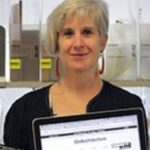 Ann Whiteside is Assistant Dean for Information Services at the Harvard Graduate School of Design. Her expertise is in libraries and expanding use of digital resources in close collaboration with scholars and the use of technology to support teaching and research. She is a co-founder of Material Order the leading resource for design materials collections at academic and cultural institutions. She is an administrative lead for the African American Design Nexus, a resource that highlights the important contributions of African American design leaders. She participates in professional organizations that shape approaches to the changing needs and opportunities faced by higher education and research libraries. Whiteside has held leadership roles in the development Society of Architectural Historians’s SAHARA, and on the CAA-SAH Task Force that authored Guidelines for the Evaluation of Digital Scholarship in Art and Architectural History, 2016. She was also PI for a grant focused on digital design files.
Ann Whiteside is Assistant Dean for Information Services at the Harvard Graduate School of Design. Her expertise is in libraries and expanding use of digital resources in close collaboration with scholars and the use of technology to support teaching and research. She is a co-founder of Material Order the leading resource for design materials collections at academic and cultural institutions. She is an administrative lead for the African American Design Nexus, a resource that highlights the important contributions of African American design leaders. She participates in professional organizations that shape approaches to the changing needs and opportunities faced by higher education and research libraries. Whiteside has held leadership roles in the development Society of Architectural Historians’s SAHARA, and on the CAA-SAH Task Force that authored Guidelines for the Evaluation of Digital Scholarship in Art and Architectural History, 2016. She was also PI for a grant focused on digital design files.
 Sebastian Schmidt Dalzon is the Assistant Dean for Academic and Strategic Planning at HGSD. Sebastian is an urban and architectural historian focusing on issues of war, race, and memory in the United States, Germany, and Japan in the 20th and 21st centuries. He holds a PhD in the History and Theory of Architecture (MIT), an MSc in Urban Studies (The University of Edinburgh), and a BA in Cultural Studies (Heinrich-Heine-Universität Düsseldorf). With a guiding interest in global and antihegemonic historiography, Sebastian’s work uses interdisciplinary approaches to investigate the urban environment as a meeting place of ideological, economic, and governmental powers, paying special attention to the social construction of narratives around ethnicity, race, and gender. As assistant dean for academic and strategic planning, Sebastian oversees curriculum planning, academic technology, institutional research, teaching and learning policies, and special projects.
Sebastian Schmidt Dalzon is the Assistant Dean for Academic and Strategic Planning at HGSD. Sebastian is an urban and architectural historian focusing on issues of war, race, and memory in the United States, Germany, and Japan in the 20th and 21st centuries. He holds a PhD in the History and Theory of Architecture (MIT), an MSc in Urban Studies (The University of Edinburgh), and a BA in Cultural Studies (Heinrich-Heine-Universität Düsseldorf). With a guiding interest in global and antihegemonic historiography, Sebastian’s work uses interdisciplinary approaches to investigate the urban environment as a meeting place of ideological, economic, and governmental powers, paying special attention to the social construction of narratives around ethnicity, race, and gender. As assistant dean for academic and strategic planning, Sebastian oversees curriculum planning, academic technology, institutional research, teaching and learning policies, and special projects.
Credits
This symposium is convened by Amelia Gan for the Irving Innovation Fellowship, in collaboration with Ann Whiteside, Assistant Dean for Information Studies at Harvard Graduate School of Design, and Margot Nishimura, Dean of Libraries at Rhode Island School of Design. This symposium is guided by advisors Eve Blau, Martin Bechthold, Niall Kirkwood, Allen Sayegh, and Sebastian Schmidt Dalzon, and is administratively supported by Nico Hayes-Huer, with graphic design by Hugh Taylor MArch ‘24.
This event is jointly funded by the Irving Innovation Fellowship, the GSD Frances Loeb Library, the Fleet Library at Rhode Island School of Design, and the GSD Development/Alumni Relations Office.
Register here for the symposium.
Anyone requiring accessibility accommodations should contact the Public Programs Office at (617) 496-2414 or [email protected].
#GSDEVENTS